The Benefits of Cooking and Baking with Stoneware
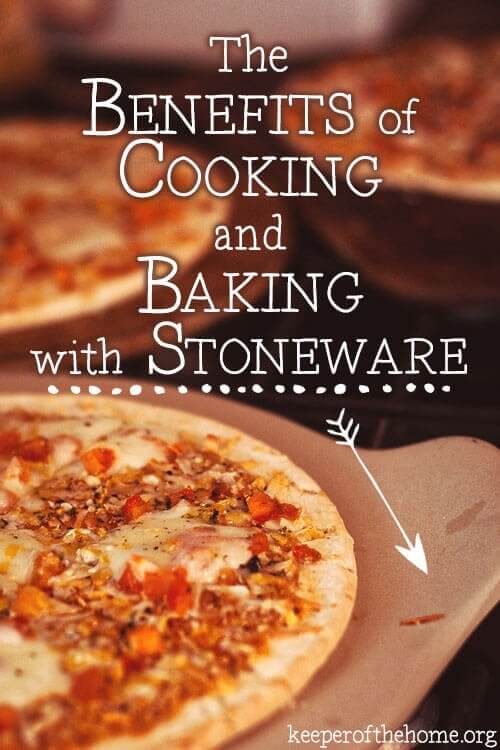
This post was originally published in 2010, but with more and more people looking for safer alternatives to their non-stick cookware, this is a great topic to revisit!
With all that I’ve been learning over the past few years about toxic materials in my various pots, pans and muffin tins, it has been so refreshing to find a safe alternative that I love using! I’ve discovered that high-quality stoneware easily meets all of my qualifications, being 100% safe, durable and effective.
I have slowly been building up a collection of stoneware, for both baking and cooking, and I could not be happier with it. Just today I told my husband that another piece under the Christmas tree would be a happy thing for me. Forget the jewelry, expensive clothes or fancy decor… I’m that rare wife who actually wants to receive a blender or a vacuum or a cookie sheet. Call me crazy.
Why I Choose Stoneware
Stoneware just makes sense for me for a number of reasons.
1. People have been using it for literally thousands of years.
It is not a new invention, which isn’t to say that all new inventions are bad, only that I like it when something has truly stood the test of time.
2. It produces quality baking results.
Stoneware heats very evenly which enables even a mediocre baker like me to attain excellent results (and anything that can do that for me gets my 2 thumbs up approval and a hearty thank you from my husband).
3. It is toxin-free.
So long as you double-check that the stoneware you are buying is made with lead-free clay (I’ll give you some shopping resources below), stoneware can be safely used without worrying about what is leaching at high temperatures or what little flecks of chemical coating are making their way onto your cupcakes.
4. It is heavy-duty, will last me forever, and is easier to use than you think.
When purchased from a reputable manufacturer, stoneware will come with a warranty (3 years is a common guarantee). If cared for well, it could possibly last until the tables turn and your children (or grandchildren!) begin to cook for you!
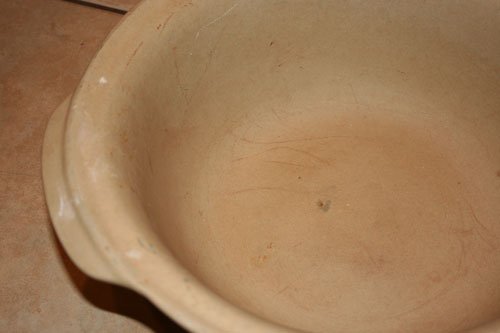
Seasoning Your Stoneware
Stoneware is similar in use to a cast iron pan. The goal is to “season” it using some type of fat or oil, so that it will develop a non-stick coating.
When you first receive your pan, give it a light but thorough coating with your fat or oil of choice. Personally, I choose to use fats that are saturated, as they remain stable even at high temperatures. I usually use coconut oil or beef tallow (lard would be fine as well). You can simply use your hands or a cloth to rub the oil thoroughly over the pan.
Another way to help season it is to use plenty of oil the first few times you use it. A great (and delicious) way to do this would be to make something like homemade baked french fries or oven roasted beets, if this suits the particular piece of stoneware. For something like a muffin tin, you could try make a slightly greasier muffin like these bacon, egg and cheese muffins. You could also oil the muffin tin well and then use unbleached muffin papers in the beginning, to allow the seasoning to set in but without ending up scraping muffin off the sides for those first uses.
Once you have done this several times and baked the stoneware with the oil on it, it will begin to be seasoned and you will find that foods stick less and less to it the more that you use it.
The combination of heat with the application of oils is what truly gets the seasoning into the stone. It sets it in and helps to create that layer of non-stick coating. So do make sure that the stoneware is baked at a high temperature with a good coat of oil on it, the first several times that you use it. It will also begin to darken and look a bit grungy as you do this, but remember that this is a sign that it is becoming seasoned and well loved. I liked this quote I found:
A good motto to remember is “The worse it looks, the better it cooks!”
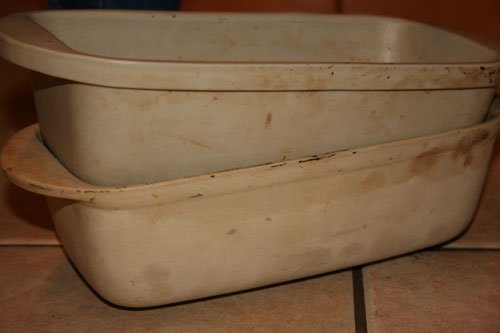
Cleaning Your Stoneware
I will admit to you… sometimes I don’t actually clean mine. If I have only been baking cookies or making something like granola that comes off easily, I don’t wash my stone in water. I simply wipe it off with a dry cloth to remove any crumbs or bits of food, and then I put it away just like that.
If I have been making something like squash fries (which tend to stick more because they don’t crisp up the same way potato or sweet potato fries do), or a cake or sweet bread that sticks just a bit, then I use my rubber scraper to clean off all the food bits, then I use a bit of hot water and give it a quick rub, then dry it off.
The most important thing to remember is this: Soap is a no-no.
Never use soap on your stoneware and this is why:
1. It will strip away that oiled, seasoned finish that you have worked so hard to establish and it will no longer be non-stick at all.
2. The soap will actually be absorbed into the stone and it will affect the taste of your food.
If something really does end up sticking badly, the best thing I’ve found to do is to allow it to soak in plain hot water (no soap!) for about 10-20 minutes, and then use a scraper to work the food off as best you can. I have heard of people using baking soda to create a paste and use that to scrub their stoneware. I suppose that you could do this and it might not strip it as much as soap would, but I would be hesitant to go that route unless absolutely necessary.
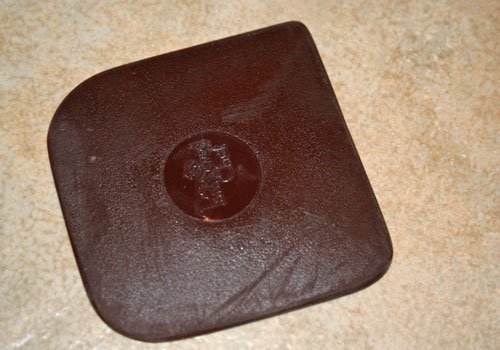
The tool that every stoneware user should have:
These Nylon Pan Scrapers. They have four different shaped corners, each of which is ideal for getting into different grooves or angles in your stoneware dishes. I love my scrapers.
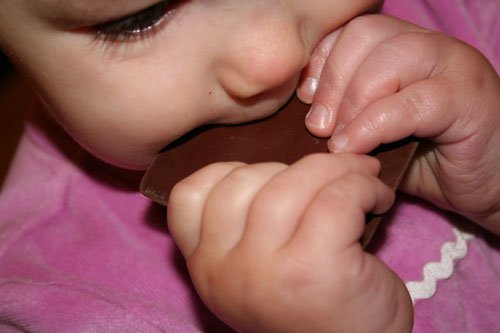
How and Where to Buy Stoneware
I will be the first to admit that stone bakeware and cookware is a bit pricier, but so worth the extra cost. Amazon carries some stoneware, their prices are decent, and you can often get shipping for free.
Pampered Chef sells their entire stoneware line in their online shop, or you can purchase it from Pampered Chef parties hosted in people’s homes.
Ebay is another place to source out stoneware. The prices are occasionally low, but usually not much different than you would find new elsewhere.
The Traditional Cook site also has a great selection of stoneware. It is run by a Weston A. Price Foundation chapter leader, who wanted to use traditional cookware herself and now makes it available to others. She doesn’t carry every type of dish you might want, but what she does carry is guaranteed lead-free and also has a 3 year warranty.
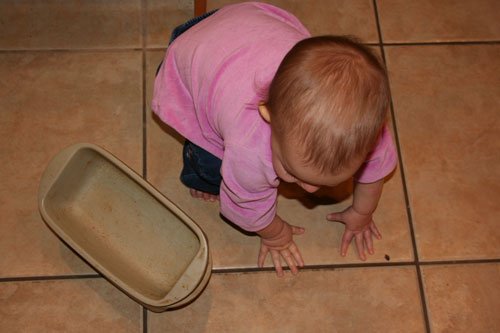
You can sometimes find stoneware at garage sales and thrift stores, but be aware that you have no idea how it was previously cared for. You can definitely score some great pieces and then lovingly work to season them, and hopefully they will work out well for you. Unfortunately, you might also find items that just haven’t been cared for and could end up never developing a good non-stick seasoned coating, have soapy residues, or end up breaking or cracking due to misuse.
When you are looking, be sure to see whether the products are certified to be free of lead, cadmium and other toxins. They should be kiln fired at temperatures above 2000 or 21000 F.

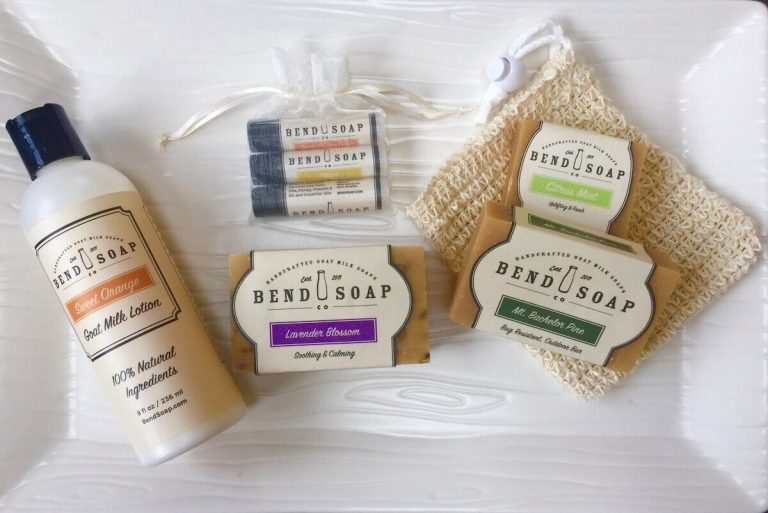

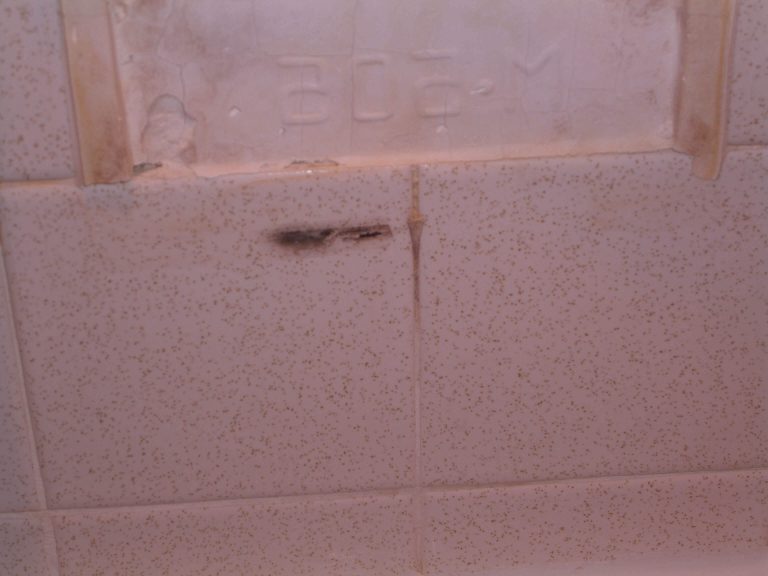
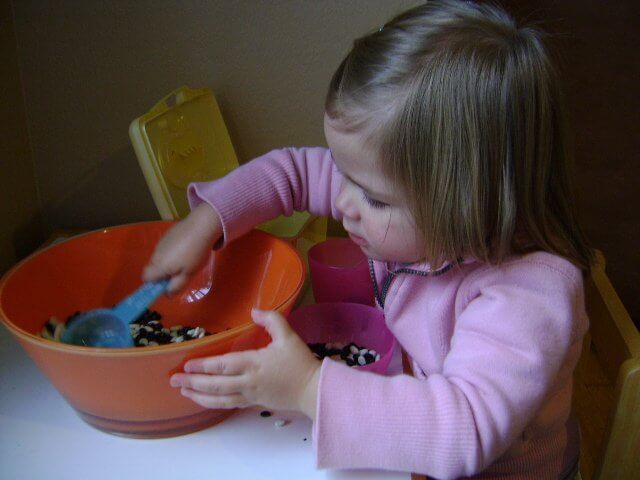
Great article; I’m glad you reposted it. I’ve been curious about alternative to our cheap metal pans, so I’ll have to look into stoneware.
I have several stoneware pieces and absolutely love them. My only suggestion to add to the excellent article you gave is to maybe not cook black beans the first time you use a large baking bowl, although it definitely will gave a dirty, used, and loved look right off the bat. I did bake the beans with a pork tenderloin so it did a good job of seasoning the bowl, but I’ve never gotten rid of the dark black stains.
we have a stoneware pizza pan that I was never taught how to clean, or even if it should be cleaned…so I never did…now it has a hefty baked-on coating from the pizza oils that most certainly will never come off without a chisel. Have I ruined our pizza stone? Or will it work just fine still?